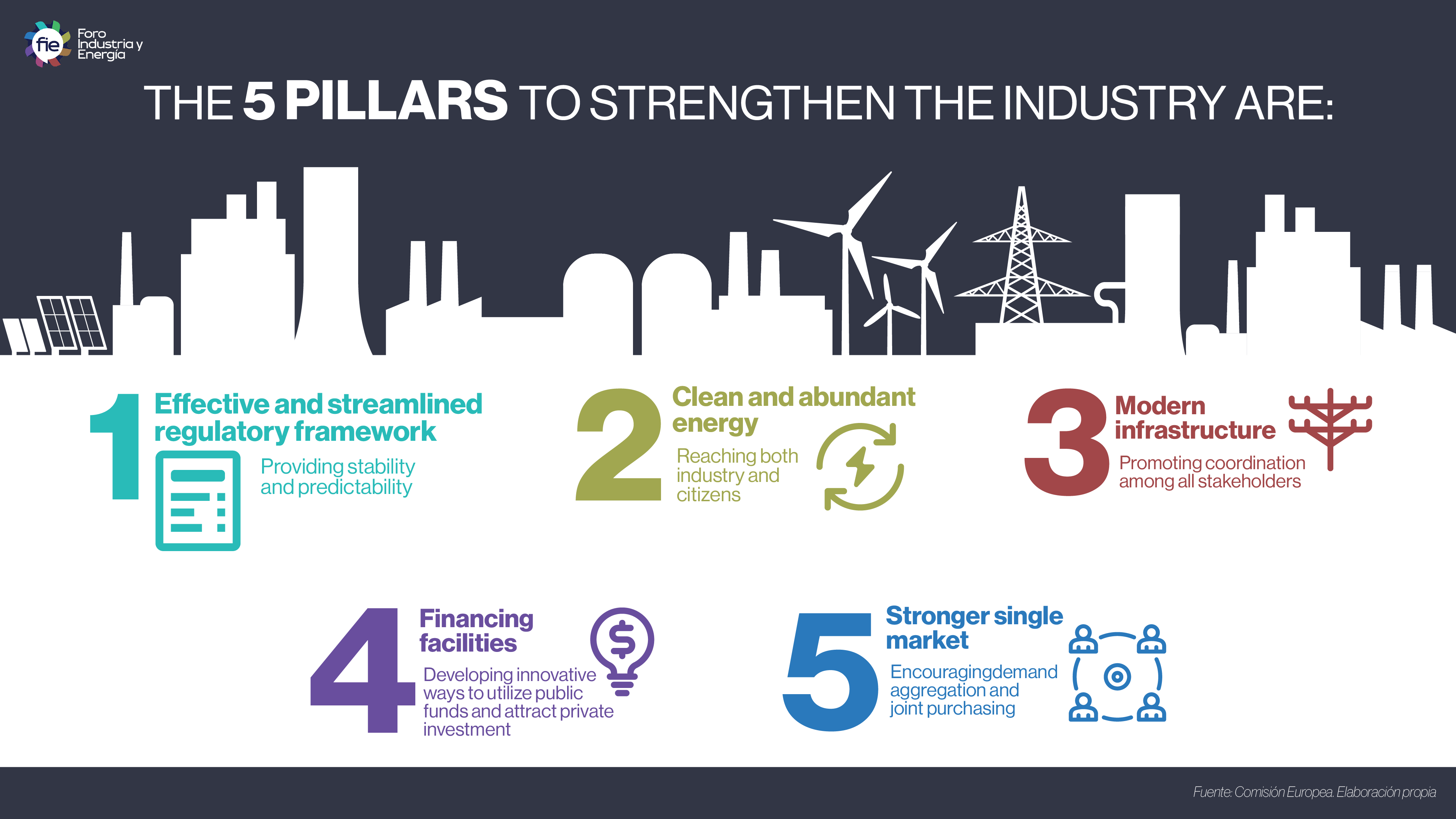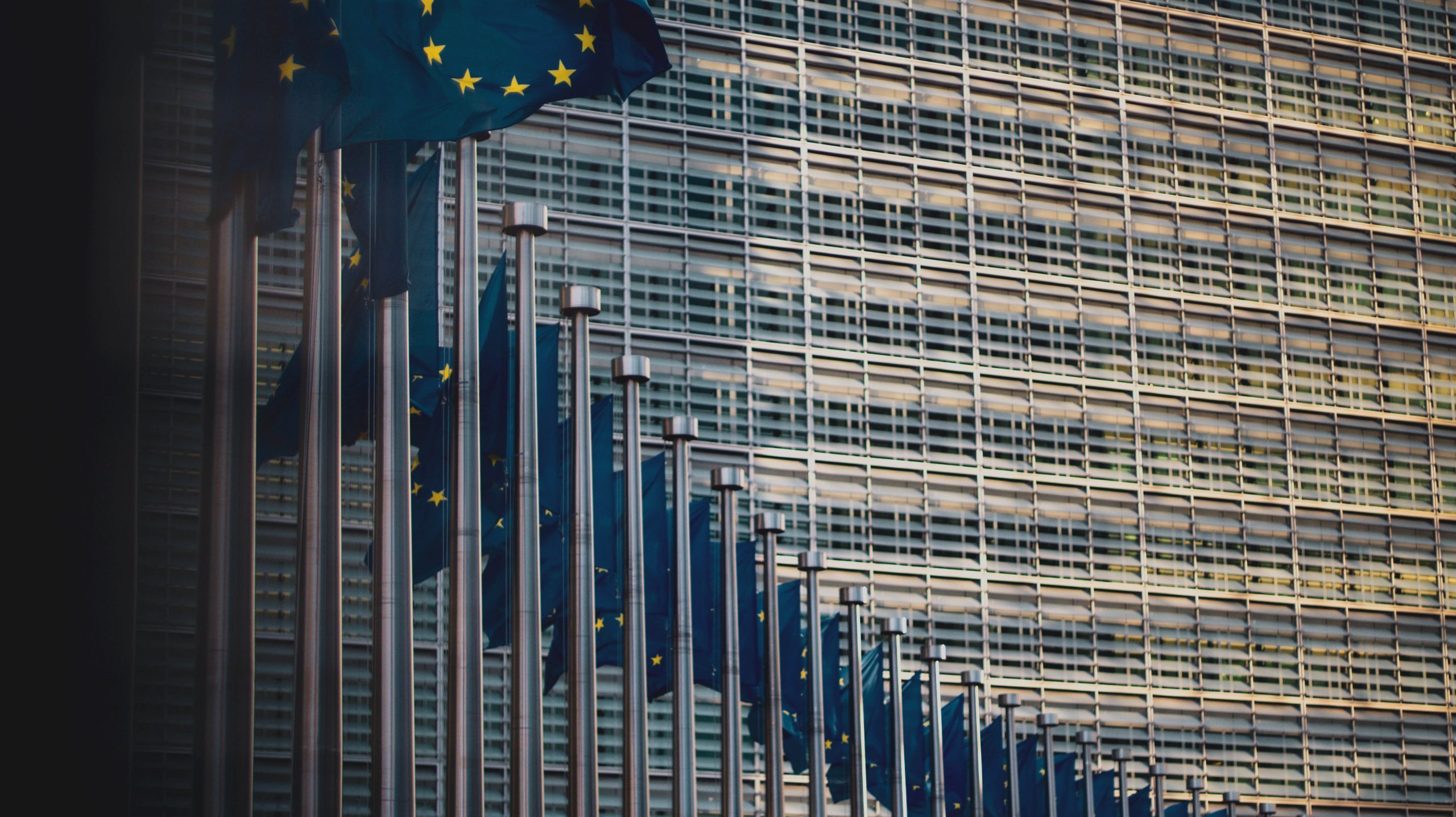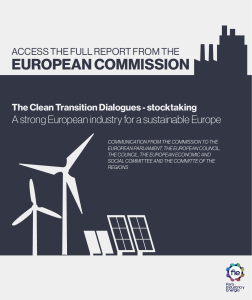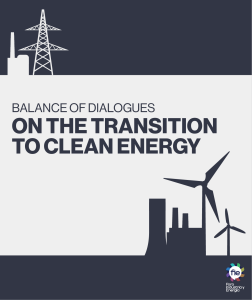- The European Commission defines five basic components of energy management to strengthen the industry: effective regulation, affordable energy, infrastructure, financing facilities, and single market.
The European Commission has issued a Communication detailing the five basic components that will underpin the strengthening of the industry within the framework of the European Green Deal, with energy management as the cornerstone and common element in all of them.
These foundations have been defined in nine dialogues in which the European industry and social partners have discussed ways to strengthen and support the implementation of the European Green Deal.

The five components are:
- An effective and streamlined regulatory framework: The Commission has announced that it will provide new guidance to help industry and Member States comply with EU legislation and will further focus on reducing administrative burden. Additionally, it will publish a set of key indicators on a specific platform to monitor and measure progress in ecological transition, EU economy competitiveness, and social transition.
- Clean, abundant, and affordable energy: The Commission urges Member States to leverage the updated legal framework to ensure that the benefits of energy transition reach both industry and citizens.
- Modern infrastructure: The Commission will adapt existing formats to provide a platform for periodic and direct dialogue with all key stakeholders, as it understands that closer coordination is needed between the Commission, Member States, local and regional authorities, network operators, industrial agents, regulators, and financial institutions regarding the development of infrastructure for the transition to clean energy.
- Financing facilities: The Commission has urged rapid progress in seeking innovative ways to use public funds to attract private investment, as well as own resources, stating that “overall, there is an urgent need for better coordination of financing at EU level, creating economies of scale, improving efficient resource allocation, and leveraging the single market.”
- Stronger single market: Among other elements and building on the successful results of joint gas purchasing, the Commission will explore the possibility of promoting demand aggregation and joint purchasing of other strategic commodities and organizing a pilot project on hydrogen and joint purchasing of essential raw materials.
Industry requests on energy
The European Commission’s Communication has indicated that during these dialogues, some industrial and transportation sectors have called for more innovative transitional measures to ensure lower-priced energy and provide security to energy producers through long-term purchasing.
Additionally, the industry has called for the establishment of industrial clusters that connect manufacturing facilities and centers with low or zero carbon emission generation plants, hydrogen and renewable and low-carbon fuel production facilities, as well as carbon capture, storage, transportation, and utilization infrastructures.
Similarly, dialogue participants have urged Member States to reconsider the level of taxes and levies on energy, for example, on electricity.
Assessment of Foro Industria y Energía
This Commission Communication once again demonstrates that energy management is a key element in ensuring the competitiveness of the European industry.
After listening to different industrial sectors, the Commission seems clear that the path to ecological transition in the industry lies in access to clean, abundant energy and the development of infrastructure to ensure that access.
To achieve this, an effective regulatory framework and access to financing are necessary. And all of this, obviously, within the framework of the European single market.



